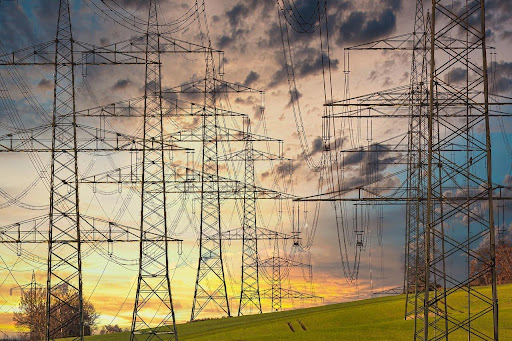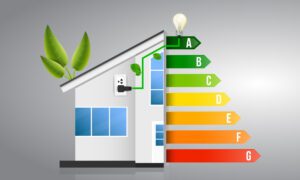Making the right energy choices for your home can have a profound impact on your long-term financial stability. With rising energy costs and a growing focus on sustainability, it’s crucial to consider various financial factors when investing in energy solutions. Whether you’re upgrading your heating system, installing solar panels, or simply improving your home’s insulation, there are financial considerations that can make a significant difference in your decision-making process.
Initial Costs vs. Long-Term Savings
When evaluating energy solutions, it’s easy to focus on the initial outlay. High-quality systems like energy-efficient windows, solar panels, or heat pumps may have steep upfront costs, but these expenses can be mitigated over time. Often, the higher the initial investment, the greater the potential for long-term savings, as these systems reduce energy consumption and lower your monthly utility bills.
Take the example of solar panels. While the initial cost can be substantial, federal and local incentives can help reduce the burden. In many cases, a well-installed solar system can pay for itself in a few years through energy savings. Over a decade or more, the savings could be substantial enough to justify the investment. The key is to understand your home’s specific energy needs and the expected return on investment.
Rebates, Incentives, and Tax Benefits
Incentives play a crucial role when considering energy solutions. Government rebates and tax benefits designed to promote sustainable energy solutions can offset a significant portion of the initial cost. Tax credits for solar installations, rebates for energy-efficient appliances, and incentives for home insulation can make otherwise expensive upgrades far more affordable.
Before making a decision, research any available local or federal incentives. Many states offer additional programs to promote energy efficiency, such as rebates for smart thermostats or home energy audits. Not only can these incentives make a big difference in reducing upfront costs, but they can also provide ongoing savings by optimizing your energy consumption.
Financing Options and Payment Plans
Paying for energy solutions upfront isn’t always feasible. Fortunately, many companies offer financing options to help homeowners spread the cost over time. Whether through a home equity loan, a personal loan, or a special financing program from an energy solution provider, these options can make expensive upgrades more accessible.
When evaluating financing options, be sure to look at interest rates, loan terms, and any hidden fees. Some financing programs offered by energy companies may even include no-interest periods or low monthly payments, making it easier to manage your budget. Just be cautious about opting for extended payment plans, as they can sometimes lead to paying more in the long run if interest rates are high.
Energy Efficiency vs. Energy Production
When deciding on energy solutions for your home, you’ll need to weigh the benefits of energy efficiency against the potential for energy production. For instance, while solar panels can generate power, energy-efficient appliances and insulation may reduce the amount of energy you need in the first place. In some cases, investing in energy-efficient home upgrades may be a better financial choice, especially if you live in an area with limited sunlight.
Many homeowners make the mistake of focusing too much on energy production—thinking that generating more energy will always lead to greater savings. However, optimizing your home’s energy efficiency can provide quicker returns on investment. Proper insulation, air sealing, and energy-efficient lighting are often less costly but can significantly reduce your home’s energy demand.
The Impact of Energy Solutions on Home Value
One often-overlooked financial consideration is how energy solutions can impact your home’s resale value. Homes equipped with energy-efficient systems, such as energy-efficient windows, advanced heating and cooling systems, and solar panels, often have higher resale values. Buyers are becoming more conscious of utility costs and are often willing to pay more for a home that will save them money on energy bills in the long run.
When choosing energy solutions, think of it as a long-term investment. If you plan to sell your home in the future, energy upgrades could make your property more appealing to buyers. For example, a well-installed solar energy system can make a home more attractive to eco-conscious buyers looking for lower energy costs.
The Role of Expert Advice in Financial Planning
Choosing the right energy solution for your home is not only a matter of selecting the right product but also understanding the financial implications. To make informed decisions, consider consulting with experts in the field. Many companies offer consultations to help homeowners assess their energy needs and develop a customized plan that fits their budget.
In some cases, a professional energy audit can be an invaluable tool. An energy audit helps identify areas of your home that need improvement and provides a clear financial picture of the cost-benefit ratio of various energy solutions. By engaging with experts, you can ensure that your investments are aligned with both your financial goals and your home’s specific energy needs.
Are you looking to optimize your home’s energy use and reduce energy bills? As explained by experts from Aeon Energy, there are websites dedicated to creating warm, healthy homes, offices, and workplaces, and minimizing energy bills. These resources can provide tailored advice, helping you find the most cost-effective solutions for your home.

Ongoing Maintenance Costs
While the upfront costs of energy solutions are a primary concern, it’s also important to consider ongoing maintenance costs. Some systems, such as solar panels or geothermal heating systems, require periodic maintenance to ensure optimal performance. The financial implications of regular maintenance should be factored into your overall budget when making a decision.
For instance, solar panels generally require little maintenance, but cleaning and inspections should still be conducted every few years. Similarly, a well-maintained heating and cooling system will be more energy-efficient, helping to offset ongoing utility costs. Be sure to budget for the necessary upkeep to ensure that your energy solutions continue to provide value over time.
Making smart financial decisions about energy solutions requires careful consideration of a variety of factors, from initial costs to long-term savings. With the right approach, you can make an investment that not only benefits your wallet but also contributes to a more sustainable future. By researching available incentives, exploring financing options, and working with professionals, you can find the energy solution that meets your needs and helps you achieve financial stability in the long run.



































